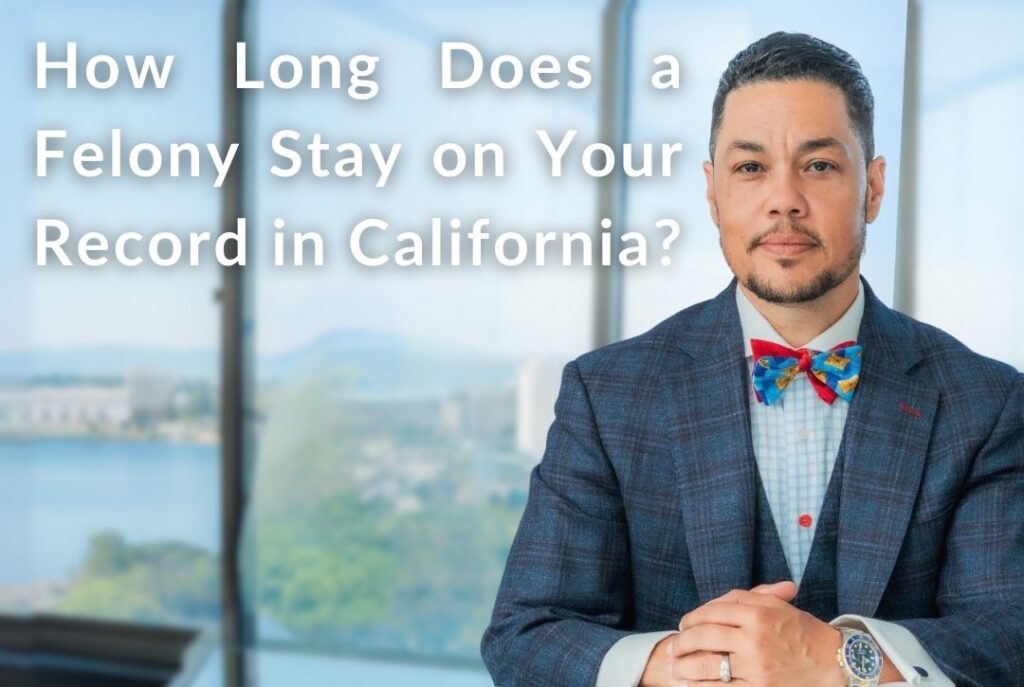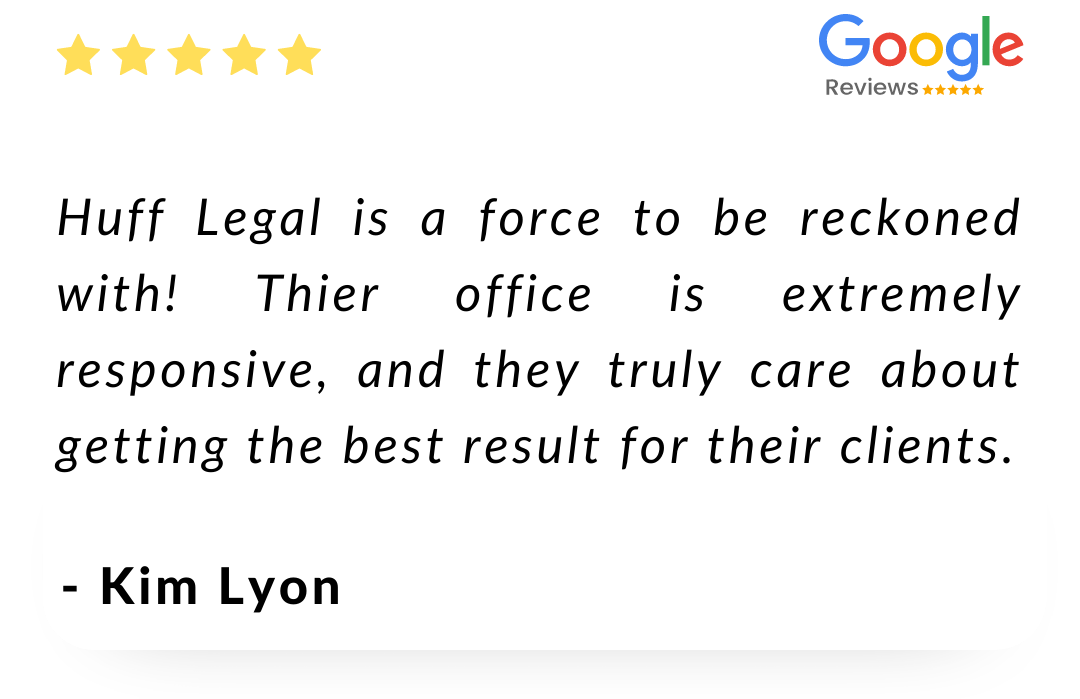How Long Does a Felony Stay on Your Record in California?
How Long Does a Felony Stay on Your Record in California?
If you’ve been convicted of a felony in California, you’re likely concerned about How Long Does a Felony Stay on Your Record. A felony conviction can have far-reaching consequences, affecting your employment prospects, voting rights, and even your ability to own a firearm.
Generally, a felony remains on your record indefinitely unless you take action to address it. However, it’s important to understand that not all background checks will reveal your felony. California has implemented laws to help those who have served their time and maintained a clean record.
This article will explore the duration of felony records in California, their impact on your life, and the options available to potentially clear your record.
What is a Felony Crime
A felony is the most severe type of criminal offense in California. These crimes are punishable by more than one year in state prison and can have severe, long-lasting consequences on your life. Understanding what constitutes a felony is crucial if you’re facing charges or have been convicted.
Key points about felonies:
- They are more serious than misdemeanors or infractions
- Sentences typically exceed one year in state prison
- They can result in significant fines
- A felony conviction can impact your rights and future opportunities
Wobbler vs. Straight Felony Convictions
Not all felonies are created equal in California. The state distinguishes between “wobbler” and “straight” felonies, which can affect how your case is prosecuted and the potential outcomes.
Straight Felonies:
- Always charged as felonies
- Include crimes like murder, rape, and selling controlled substances
- Automatically result in a felony on your criminal record if convicted
Request a Free Consultation
Wobbler Felonies:
- Can be charged as either a felony or a misdemeanor
- Examples include domestic violence, vandalism, and assault with a deadly weapon
- The prosecutor decides whether to charge as a felony or misdemeanor based on:
- Facts of the case
- Presence of aggravating factors
- Your criminal history
If you’re facing a wobbler felony charge, having an experienced attorney can be crucial in potentially reducing the charge to a misdemeanor.
How Long Does a Felony Stay on Your Record?
In California, a felony conviction typically stays on your record indefinitely unless you take action to have it removed. This means that without intervention, your felony conviction could potentially impact your life for years to come.
Factors Affecting Duration
Several factors can influence how long a felony stays on your record and its impact:
- Type of felony: Some felonies are eligible for expungement, while others are not.
- Completion of sentence: Completing your sentence, including probation, is often a prerequisite for expungement.
- Subsequent criminal activity: Staying crime-free after your conviction can improve your chances of expungement.
- Legal action is taken: Pursuing expungement or record sealing can potentially remove the felony from public view.
- California’s Clean Slate laws: Recent legislation may provide automatic relief for certain felonies after a specified period.
It’s important to note that even if a felony remains on your record, not all background checks will reveal it. Some employment background checks, for instance, only go back 7-10 years.
Who Can See Your Felony Record?
In California, your felony record is generally accessible to various parties, potentially impacting different aspects of your life. Understanding who can see your record is crucial for managing its impact on your future.
Key parties who may access your felony record include:
- Employers: Many employers conduct background checks, especially for sensitive positions.
- Landlords: When applying for housing, your criminal record may be reviewed.
- Educational institutions: Some colleges and universities ask about criminal history.
- Professional licensing boards: Certain professions require background checks for licensing.
- Law enforcement: Police and other agencies have access to your full criminal history.
- Courts: In future legal proceedings, your record may be considered.
It’s important to note that while your record is accessible, there are laws regulating how this information can be used, particularly in employment contexts.
Can a Felony Be Removed From My Record?
Yes, in many cases, a felony can be removed from your record in California through a process called expungement. However, this isn’t automatic and requires action on your part.
Key points about felony expungement:
- State courts, not federal courts, handle it.
- Generally requires the assistance of a legal representative.
- Doesn’t erase media coverage or public knowledge of the conviction.
- It can significantly improve your future prospects.
Which Felonies Cannot be Expunged in California?
While many felonies are eligible for expungement, some serious offenses are excluded. Felonies that typically cannot be expunged include:
- Statutory rape involving a victim under 16 and an offender over 21
- Certain sex offenses involving children
- Murder
- Assault with a deadly weapon resulting in serious injury
- Acts of terrorism
Limitations of Expungement
While expungement can be incredibly beneficial, it’s important to understand its limitations:
- Doesn’t automatically restore gun rights
- Doesn’t reinstate a suspended driver’s license
- Doesn’t end sex offender registration requirements
- The conviction can still be used to enhance sentences for future crimes
- Doesn’t erase the conviction from law enforcement records

As Seen On












Eligibility for expungement in California depends on several factors. Generally, you may be eligible if:
- You were convicted of a felony or misdemeanor in California state court
- You’re not currently facing criminal charges or serving a sentence
- You didn’t serve time in state prison (county jail is okay)
- You’ve completed felony probation or had it terminated early
- You’ve fulfilled all requirements of your sentence
- You don’t have outstanding court orders or fines
- At least one year has passed since your conviction if you didn’t receive probation
Felonies that are “wobblers” (can be charged as either felonies or misdemeanors) are often good candidates for expungement.
It’s important to note that if you were convicted in federal court or served time in California state prison, you’re likely not eligible for expungement under this process.
Benefits of Expungement
Expunging a felony from your record in California can offer numerous advantages, potentially transforming your life opportunities. Understanding these benefits can help you decide if pursuing expungement is right for you.
Key benefits of expungement include:
- Employment Opportunities:
- You may not have to disclose your criminal history on job applications
- Improved chances of passing background checks
- Potential access to careers previously closed due to your record
- Housing:
- Easier approval for rental applications
- Improved chances of securing housing in desirable areas
- Education:
- Eligibility for certain scholarships and grants
- Easier admission to colleges and universities
- Professional Licensing:
- Ability to obtain state licenses or certifications
- Opportunity to join professional organizations
- Legal Benefits:
- Your credibility may not be questioned in court proceedings based on the expunged conviction
- Potential for more favorable outcomes in future legal matters
- Personal Growth:
- Increased self-esteem and confidence
- Ability to move forward without the stigma of a felony conviction
What Clients Say About Us





Schedule Your Free Consultation Today
The Expungement Process
Navigating the expungement process can seem daunting, but understanding the steps involved can make it more manageable. Here’s a breakdown of what you can expect:
Steps to File For Expungement
- Seek Legal Advice:
- Consult with an experienced attorney
- They can guide you through the process and increase your chances of success
- Gather Necessary Documents:
- Obtain your criminal records
- Collect proof of completed probation or sentence
- File the Petition:
- Submit a Petition for Dismissal (Form CR-180) to the court where you were convicted
- Include all required supporting documents
- Pay Filing Fees:
- Be prepared to pay court fees, though fee waivers may be available if you can’t afford them
- Wait for the Court’s Response:
- The court will review your petition
- They may schedule a hearing or make a decision based on the paperwor
The Expungement Hearing
If a hearing is scheduled, here’s what you can expect:
- Duration: Typically about 10 minutes
- Setting: Before a judge, no jury
- Your Role: Be prepared to explain why you deserve expungement
- Judge’s Considerations:
- Nature of the offense
- Your compliance with probation
- Any additional convictions
- Your employment history
- Community involvement
If successful, you’ll receive a signed order dismissing your conviction. If denied, you can ask for the reasons and reapply after six months, addressing the issues raised.
California's "Clean Slate" Laws
California has recently implemented significant criminal justice reforms, known as the “Clean Slate” laws, which can greatly benefit those with felony convictions.
New California Expungement Law
Senate Bill 731, effective as of July 1, 2023, represents a major shift in California’s approach to criminal records:
- Automatically clears most felony convictions after four years
- Seals felony arrest records that didn’t lead to charges after three years
- Misdemeanor arrests are sealed after one year if no charges were filed
How Clean Slate Laws Work in California
The Clean Slate Act operates automatically, removing the burden of filing for expungement:
- The California Department of Justice reviews criminal records monthly
- Eligible records are automatically cleared
- This applies to both probation and incarceration cases
- Aims to improve employment and housing prospects
Crimes Ineligible for Automatic Record-Sealing
While the Clean Slate laws are broad, some offenses are excluded:
- Serious violent felonies
- Sex offender registry crimes
- Certain high-level felonies
It’s important to note that while these laws offer significant relief, they don’t restore all rights (such as gun ownership) and don’t completely erase records from all government databases.
Get Expert Legal Help from Huff Legal
Understanding how long a felony stays on your record in California and the options for expungement can be crucial for moving forward with your life. While felony convictions can have long-lasting impacts, California’s laws, including the new Clean Slate Act, offer hope for those seeking to clear their records and open new opportunities.
At Huff Legal, we understand the challenges you face with a felony on your record, and we’re here to help. Our experienced team can guide you through the expungement process, ensuring you understand your rights and options every step of the way.
Don’t let a past mistake define your future – contact Huff Legal today for a confidential consultation and take the first step towards clearing your record and reclaiming your life.
LET HUFF HELP YOU
As a former police officer and patrol supervisor and his time spent as a United States District Court Judicial Law Clerk to the Chief Judge, Attorney Huff knows how to navigate all levels of the complex criminal law system. We also have more than 55 years of combined experience dealing with various complex criminal legal matters and have helped just over 1,500 clients over the past few years.
Why Huff Is Your Best Option For Criminal Defense
55+ Years of Combined Experience
At Huff Legal, we have more than 55 years of combined experience dealing with complex criminal legal matters, which can oftentimes be quite challenging. In order to get the outcome you deserve, you need a team of experienced attorneys on your side, who can help you navigate the legal system, so you can move past this situation and focus on the life ahead of you!
5 Star Rating on Google
We have a proven track record of success and are dedicated to our clients’ best interests. If you’re looking for a law firm that will always have your back, look no further than Huff Legal. Just have a look at some of our amazing client reviews over here!
1,500+ Happy Clients
Over the years, we’ve had the privilege of helping over 1,500 clients with their legal needs. When you work with us, you can be confident that you’re getting the best possible legal representation. We’re proud of our track record and our reputation for being a firm that delivers great results.
What Our Clients Say About Us


Sheila


Abel Resendiz


Manuela Frazier


Doris
Contact Huff Today
Request A Free Consultation
* Free consultations only available for Criminal Defense


In legal terms, an accessory to murder refers to an individual who aids, abets, or otherwise assists in committing a murder. While the specifics may vary across jurisdictions, California law treats accessories to murder as active participants in the crime, holding them accountable for their actions. In San Francisco Bay Area, there are two primary types of accessories to murder:
In the event that you find yourself in the Bay Area facing accessory to murder charges, you should first call a criminal defense attorney who can help you defend your rights and lessen the effects of the investigation. Contact an attorney at Huff Legal as soon as possible following your arrest. An accomplished attorney from Huff Legal will thoroughly examine your case, who will then develop a strategy and build a defense.
